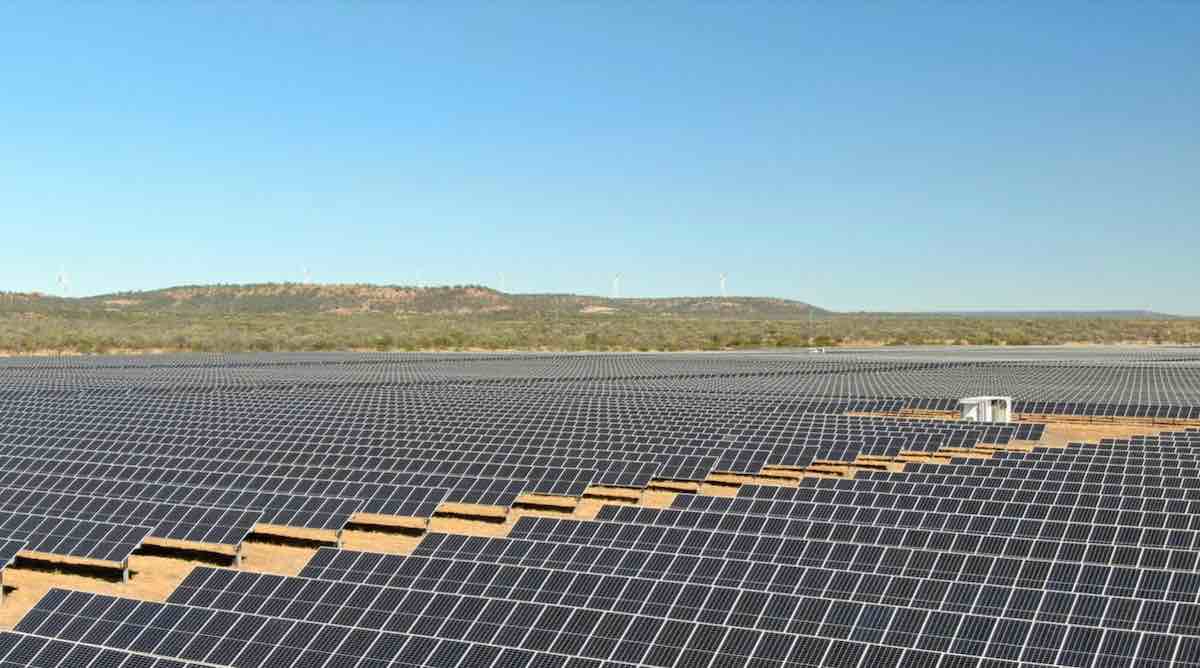A consortium of three of Korean industrial giants has unveiled plans to develop green energy export corridor connecting North Queensland to north-east Asia, that will export more than 1 million tonnes a year of green ammonia, and be powered by 3GW of renewable energy generation capacity.
The huge green hydrogen plans of the so-called “Han-Ho H2” consortium were revealed on Wednesday, through the signing of a Memorandum of Understanding between Australian-based Ark Energy and its parent company Korea Zinc, as well as Hanwha Impact and SK Gas.
The plans centre around the development of Ark Energy’s newly announced Collinsville Green Energy Hub, south-west of Bowen, which the companies say will have the potential to generate up to 3,000MW via a mix of wind and solar.
The project is forecast to export more than 1 million tonnes of green ammonia a year from Australia to Korea by 2032.
The Queensland government on Wednesday welcomed the news, hailing the teaming of the three giant Korean industrials as the start of a new green export trade between Australia and Korea.
Korea is already the third largest importer of ammonia in the world and the Korea Institute of Energy Research recently estimated Korea’s total ammonia demand will exceed 21 million tonnes a year beyond 2030.
Already, in Townsville, Ark Energy’s SunHQ Hydrogen Hub (SunHQ) plans to produce green hydrogen from a behind-the-meter connection to the co-located 124MW Sun Metals solar farm.
And in May of this year, the Australia-based Korea Zinc offshoot sealed the purchase of a 9GW pipeline of wind and solar projects as part of its grand plans for expansion into green hydrogen production.
As RenewEconomy reported, that purchase of Epuron Holdings, originally announced just before Christmas in 2021, includes a pipeline of 4.2GW of “early stage” utility scale wind and solar projects, and an “investigation” pipeline of another 4.8GW.
In comments on Wednesday, Ark Energy CEO, Daniel Kim, said strategic partnerships would be essential to building a green ammonia supply chain from Australia to Korea at the necessary scale.
Hanwha Impact is a major petrochemicals company in Korea and SK Gas holds the largest market share of the Korean domestic LPG market. Korea Zinc is the world’s biggest producer of zinc, used chiefly as an anti-corrosive in galvanised steel.
“Together with our parent company, Korea Zinc, we carefully selected Hanwha Impact and SK Gas as potential partners and we are delighted that they have decided to join our consortium,” Kim said.
“Our partners and our parent company are major players in Korea’s hydrogen economy and have a forecast demand for more than 2 million tonnes of green ammonia per annum from 2030.”
Kim said Korea Zinc’s participation in the consortium would be as one of the offtakers and will as a contributor to a
number of the workstreams in the MoU, including ammonia production, storage and associated infrastructure.
“We look forward to working with our partners to unlock Australia’s potential to become a large-scale producer and exporter of green hydrogen and its derivatives including green ammonia,” said Korea Zinc Vice Chairman Yun B. Choi.
SK Gas CEO, Brian Yoon said the three-way agreement reached under a memorandum of understanding held wide-ranging strategic importance in energy transition.
“This MoU aligns with our ambition to become a global top tier Net Zero Solution Provider and we’re excited to be collaborating with our partners to play a tangible role in helping countries like Korea in its energy transition by providing clean hydrogen,” Yoon said.
Hanwha Impact’s part in the consortium will also be as one of the offtakers, while also contributing to such work streams as ammonia cracking and converting gas turbines to hydrogen ready turbines.
Queensland Premier Annastacia Palaszczuk said the consortium represented another step in Queensland’s quest to become a “hydrogen powerhouse.”
The consortium aims to make a final investment decision around 2027 or 2028, with construction expected to take around four years,
Queensland is already Australia’s largest exporter to south Korea of any state and territory, although much of those exports are in coal and gas.
Queensland Minister for Energy, Renewable and Hydrogen Mick de Brenni said since the launch of the Queensland Hydrogen Industry Strategy in 2019, the state government had been working to further develop a clean hydrogen export industry.
“The strength of Queensland’s existing infrastructure, combined with our future investment pipeline, is setting up towns like Townsville and regions like North Queensland to cement Queensland’s position as a global green hydrogen leader,” he said.










